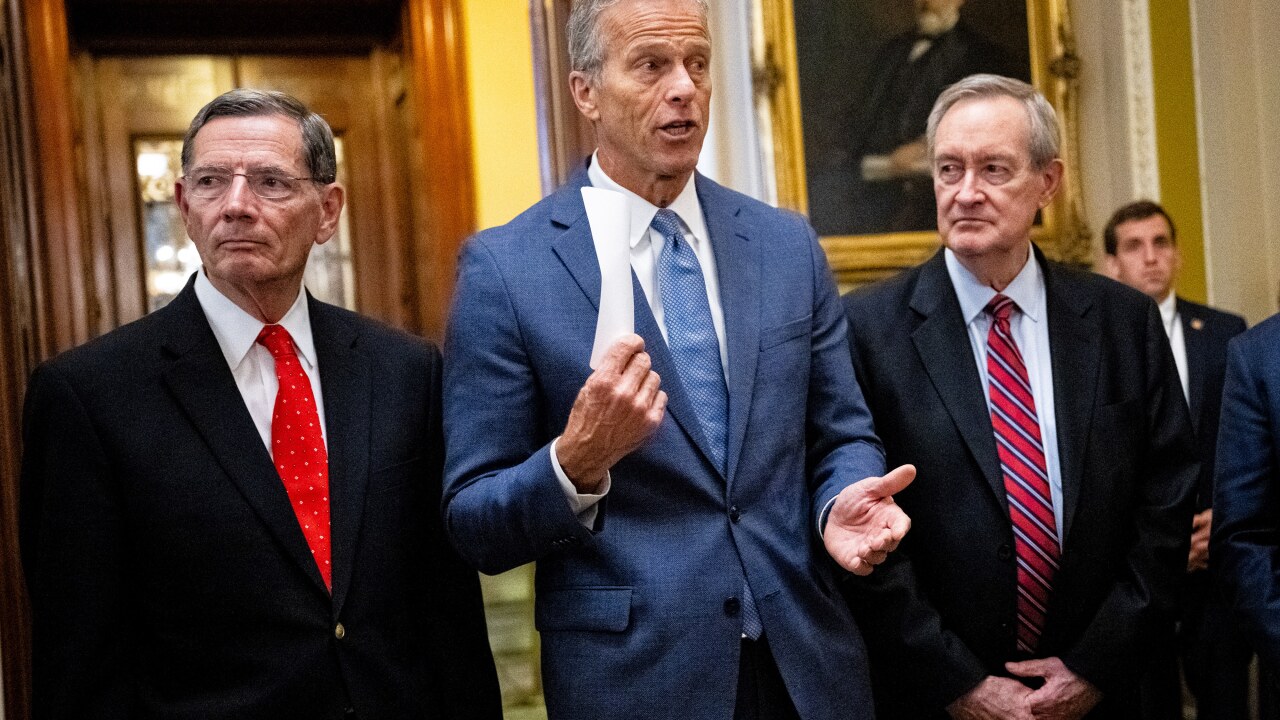Wells Fargo & Co.’s deal to acquire Wachovia Corp. has not stopped Wells from launching new investment products, including a new socially responsible fund.
Andrew Owen, an executive vice president of Wells Fargo Funds Management, said the $15 billion deal, which was announced Oct. 3 and is set to close in December, would have little impact on the Wells Fargo Advantage Social Sustainability Fund, despite Wachovia’s hefty lineup of proprietary mutual funds. Wells is fully committed to the new fund, he said.
Sean Cunniff, a research director for TowerGroup, an independent research firm owned by MasterCard Inc., said: “Wells is the acquiring firm in this deal, and they will make the decisions about how to merge the fund families. Wells Fargo believes in the product, or it would not have gone through with the launch.”
Evergreen Funds of Charlotte, Wachovia’s proprietary fund family, does not have a similar fund, so the Wells product probably will not be affected, Mr. Cunniff said. He said he expects Wells to merge its funds with Evergreen’s over time.
Mr. Owen said the Social Sustainability Fund, which the San Francisco company launched Oct. 15, will have a two-pronged investment strategy: The fund’s managers will use an inclusive screening process to ensure the fund invests in companies that are not connected to alcohol, tobacco, gambling, weapons manufacturing, and the like.
The fund invests in stocks from 30 to 50 large-cap companies. It is subadvised by Nelson Capital Management of Palo Alto, Calif., a specialist in socially responsible investing.
Mr. Owen said he expects the fund to stand out because it seeks to attain the best performance first, with the socially responsible component of the process following Wells’ growth at a reasonable price strategy.
Socially responsible investing is growing faster than other types of managed investments, Mr. Owen said. Mutual fund assets under management grew about 3% over the past five years, while assets managed in socially responsible funds grew more than 18%, he said.
“We see this investment philosophy becoming more mainstream in other ways as well,” he said. “For instance, more and more investment research firms offer research in this area.”
There are 150 to 200 socially responsible funds, from firms including Calvert Group Ltd. and TIAA-CREF, Mr. Cunniff said.
“Assets in socially responsible investments have grown substantially, and interest in socially responsible investing continues to grow, although socially responsible funds have been impacted by the market downturn along with every other type of fund,” he said. “However, socially responsible investing is still a controversial area, particularly in the world of institutional investing.”
“The Department of Labor just issued guidelines stating that socially responsible investment, or as they call it, investments in ‘economically targeted investments,’ can only be made in very limited circumstances and must adhere to strict fiduciary standards,” he said.
The most interesting aspect of the offering, Mr. Cunniff said, is that Wells/Nelson will apply fundamental analysis first.
“Essentially, this means they will not purchase a company just because it is run in a manner consistent with the social screens,” he said. “The investment performance is prioritized over the social aspects.”
Mr. Cunniff said Wells’ decision to hire an institutional manager with a track record and a time-tested process as a subadviser was a smart move and will help the Wells Fargo Advantage Social Sustainability Fund gain credibility.





